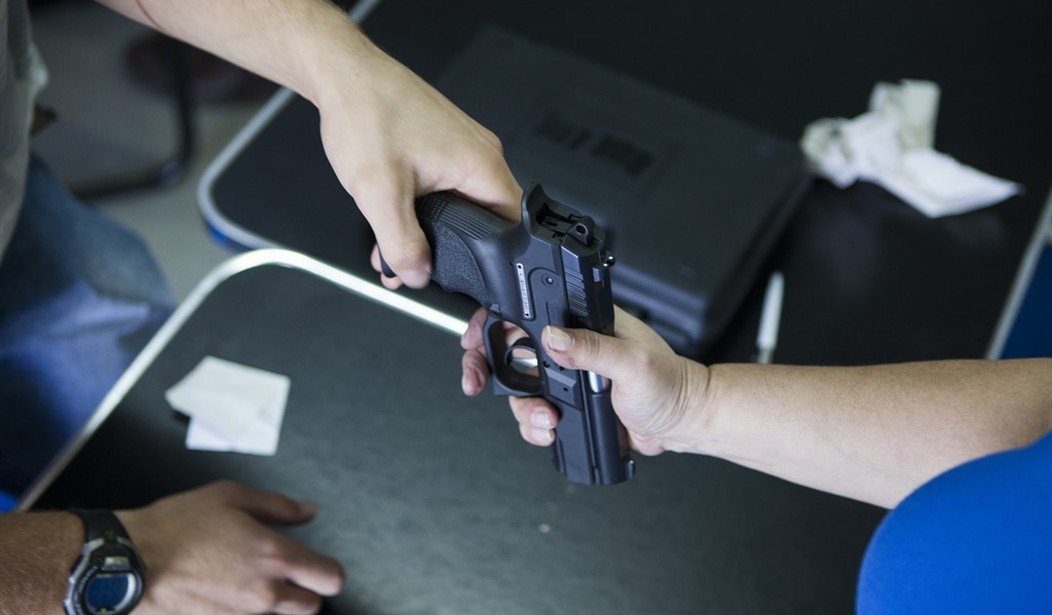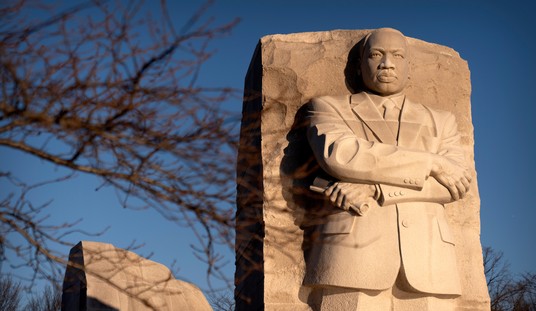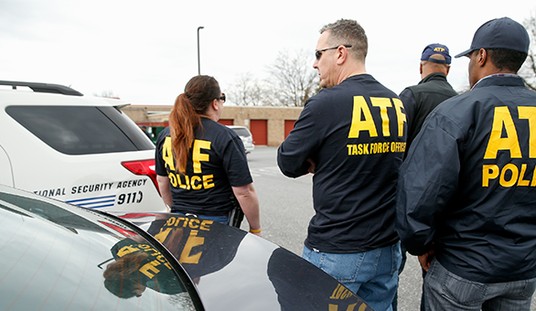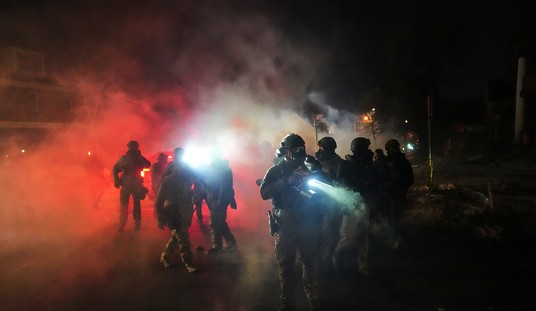One year ago, a 43-year old man with a lengthy criminal history and mental health issues walked onto the "gun-free" campus of Michigan State University and opened fire, killing three students and injuring five others. The state legislature, which had recently flipped from GOP to Democrat control, responded to the attack with a flurry of gun control legislation that was sent to Gov. Gretchen Whitmer for her signature.
It's telling that the bills she signed into law were slated to take effect on the one-year anniversary of that attack instead of being implemented immediately, as you might expect if these measures were vital to improving public safety. It's not that the new laws are entirely symbolic in nature, but timing of the implementation of the "red flag" law, "universal" background checks, and storage mandate to the first anniversary of the shooting suggests that the symbolism was still important to those anti-gun lawmakers who put them in place.
It's a different story for those who are charged with enforcing the new laws, many of whom have concerns about the process, the effectiveness, and the constitutionality of the restrictions.
Law enforcement officials expressed some misgivings about the red flag law, specifically related to its potential misuse against officers who have to carry firearms as a condition of employment and the law's dependence on law enforcement to carry out the confiscation of guns.
"I worry about it," said Jim Tignanelli, president for the Police Officers Association of Michigan. "I don’t want anybody to get killed. ... This is a pretty broad brush in my opinion and I don’t think it's going to get enforced all that well.”
Tignatelli's concerns are shared by Matt Saxton, the executive director of the Michigan Sheriffs Association, who notes that the new storage mandate will be impossible to enforce proactively. "Unfortunately, with these cases, the prosecution will be because someone’s been hurt. It’s reactive," Saxton told the Detroit News.
The same is true for the new "universal" background check mandate. There's no way for law enforcement to be aware of every person-to-person sale as it's happening, so at best this new law will provide prosecutors with another charge to levy after the fact. And based on what we've seen in other states like Washington, Colorado, and New Mexico, prosecutions will be few and far between anyway.
It's also worth noting that violent crime has already been trending down across much of the state without the "help" from any of these new gun laws. Last year Detroit had the fewest murders in almost 60 years, along with a 13 percent drop in non-fatal shootings and a 36 percent decline in carjackings. As it turns out, focusing law enforcement resources on violent offenders is a much more effective strategy than blanketing lawful gun owners in a host of new restrictions.
A major reason behind the drop in violent crime has to do with a collaboration among police, prosecutors, and the local judiciary. Together, they’ve been working to clear a backlog of thousands of felony gun cases that built up amid the pandemic.
During COVID-19 shutdowns, the courts were also shut down. People who were charged with gun violence were often out on bond, resulting in more violent crime on the streets.
The courts, police, and prosecutors have been working overtime to clear a backlog of 4,000 felony gun cases. Both the Wayne County Prosecutor’s Office and sheriff’s office have also increased their staffing, which they say has contributed to the decrease in violent crime.
But that’s not all: For the first time ever, the city of Detroit is investing millions of dollars into community groups with proven track records of addressing crime. These groups are being deployed to work in various sections of the city.
Activist Teferi Brent, who has done frontline work on the streets for years, says the problems are systemic.
“[Detroit police Chief James White] has said for years: ‘You can’t arrest your way out of the problem‚'” Brent said.
Brent acknowledged the work being done to offer a second chance to people being released from prison as one way to initiate systemic change. He says it’s an opportunity to show young men that their lives can be so much more than street crime.
“This is the work of everyone, not just law enforcement. I’d argue law enforcement is the smaller part of the solution to this issue,” Brent said. “It’s the work of people in the community who are organized and working to address the root-cause issues that contribute to criminogenic behavior.”
The storage mandate, "red flag" law, and expanded background checks are antithetical to that targeted approach, as well as fundamental violations of our right to keep and bear arms. Instead of fixing the state's broken mental health system to ensure that those in crisis get the help they need, Democrats decided that so long as any lawfully owned guns are taken from those deemed by a judge to possibly pose a threat to themselves or others the problem is solved. That's an approach that's not only going to lead to civil rights being violated, but guarantees that dangerous people are going to be free to hurt themselves or others because they're not getting the necessary inpatient treatment to keep themselves and others safe.
Gun control activists will be patting themselves on the back for a job well done today, even as they plot further infringements on our right to keep and bear arms. For those of us who care about public safety and our civil rights, however, Michigan's new laws are something to litigate... not celebrate.









Join the conversation as a VIP Member